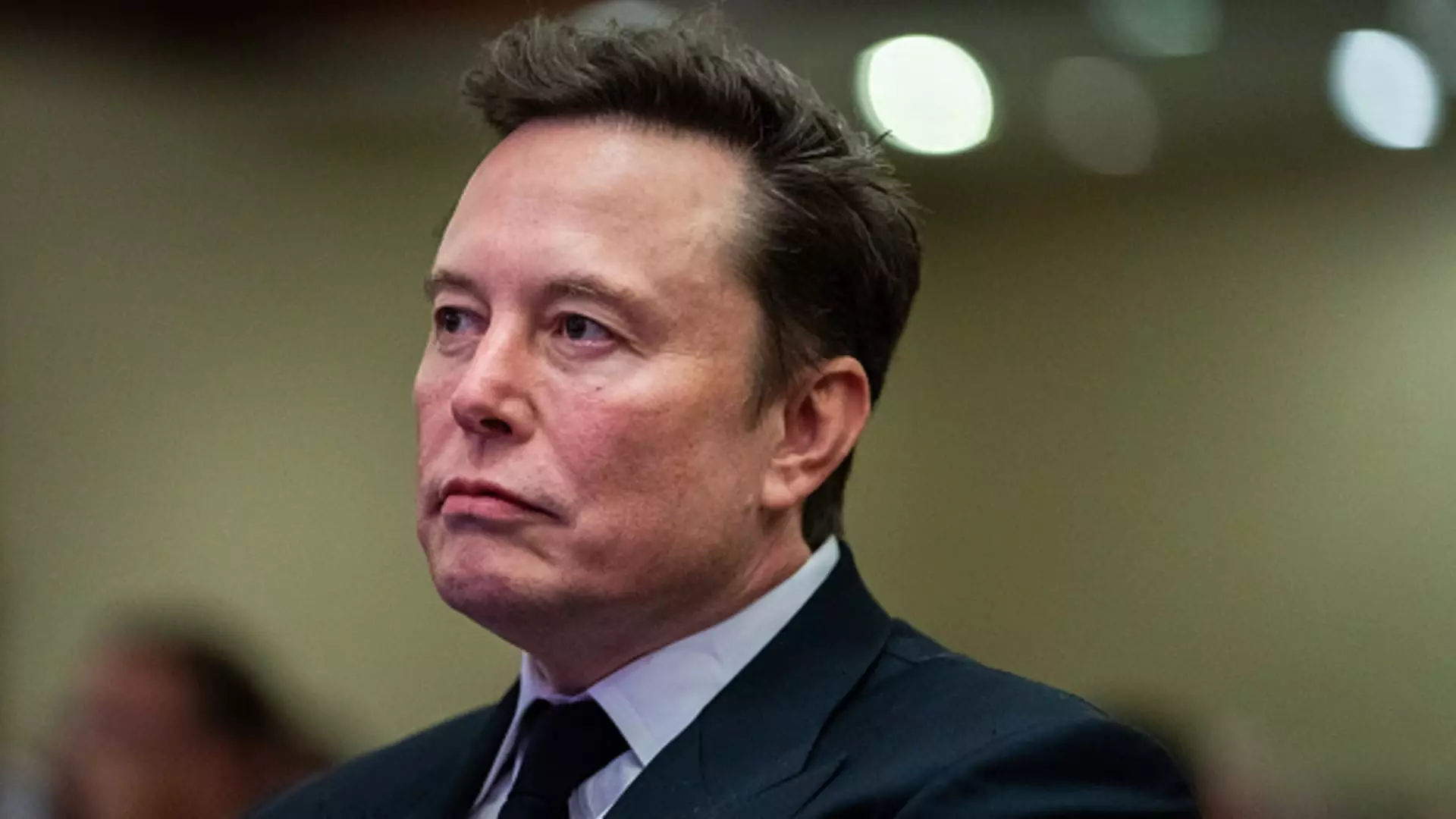Elon Musk, the controversial tech mogul and CEO of companies like Tesla and SpaceX, is no stranger to scrutiny. Recently, the Securities and Exchange Commission (SEC) has intensified its investigation into Musk’s financial dealings, particularly concerning his transactions with Twitter—now known as X. The latest development involves a “settlement demand” issued by the SEC, which Musk publicly shared via social media. This situation highlights the complex relationship between regulatory bodies and high-profile individuals, especially when the lines between personal grievances and legitimate oversight begin to blur.
The SEC’s role is to ensure transparent and fair trading practices within the securities markets. Musk’s alleged misconduct revolves around the purchase and sale of Twitter shares, raising concerns about potential securities fraud. Musk’s lawyer, Alex Spiro, asserted that the SEC pressured Musk to enter a settlement involving a fine within 48 hours, threatening legal repercussions should he fail to comply. This aggressive approach from the SEC prompts vital inquiries regarding their methods and the legitimacy of their claims; is Musk a victim of regulatory overreach, or is he evading accountability for potential wrongdoing?
The SEC’s investigation dates back to 2022 when Musk sold off Tesla shares to consolidate funding for a significant investment in Twitter. These transactions could have significant ramifications for stakeholders if they were not adequately disclosed, emphasizing why the SEC must take its mandate seriously. However, the accusation of harassment through extensive investigations against Musk raises red flags about whether the agency is acting in good faith or pursuing a vendetta against a high-profile figure.
Musk’s recent posts on social media reflect a blend of defiance, humor, and provocation—strategies he has employed throughout his tumultuous encounters with the SEC. Displaying an AI-generated image portraying SEC Chair Gary Gensler as a snail-like entity underscores Musk’s penchant for derision in the face of scrutiny. This response could be interpreted as not only an evasion of accountability but also as an insightful glimpse into Musk’s approach to handling authority.
Critics argue that Musk’s demeanor during legal scrutiny undermines the gravity of the allegations against him. By branding regulatory oversight as harassment, Musk shifts the narrative away from accountability and toward the victimization of a bold visionary. This tactic, although effective for his public persona, raises ethical questions about how the narrative can shape public perception regarding corporate accountability.
Musk’s entanglements with the SEC exist within a broader political framework, where finance, technology, and governance intersect significantly. His connection to figures like former President Donald Trump has transformed Musk from merely a businessman into a politically charged entity. The SEC’s actions against Musk, particularly in the wake of Trump’s statements to remove Gensler from his position, could potentially be viewed through a political lens. This dynamic complicates the typical narrative surrounding regulatory investigations, cause them to appear as collateral damage in a larger political battle.
Furthermore, Musk’s history with the SEC reaches back to 2018 when he faced civil charges for tweeting that he was considering taking Tesla private at $420 per share. The SEC’s sanctions, which included fines and the relinquishment of his chairmanship, have only exacerbated the adversarial relationship between Musk and the regulatory body. How does one separate personal animosity from institutional oversight when past grievances feed into contemporary scrutiny?
The ongoing investigation has financial implications not just for Musk himself but also for stakeholders within Tesla and Twitter. For instance, a lawsuit from the Oklahoma Firefighters Pension and Retirement System accuses Musk of misrepresenting his investments and intentions regarding Twitter, alleging that he failed to provide full disclosures which could have influenced shareholder decisions. If the courts determine that Musk acted in bad faith, the financial repercussions could be severe, leading to significant damages and further erosion of trust in his leadership.
Moreover, this situation illuminates the precarious balance between regulatory oversight, corporate governance, and shareholder rights. Stakeholders often rely on transparency and accuracy from executives, fostering a climate where informed decisions can be made. Any erosion of that transparency can harm not only individual investors but subsequentially the market at large.
Elon Musk’s ongoing conflict with the SEC serves as a reminder of the tenuous relationship between high-profile individuals and regulatory bodies. While Musk may perceive himself as the misunderstood visionary fighting against bureaucratic oppression, the reality may reflect a larger need for accountability amidst growing concerns regarding ethical corporate behavior. The stakes are not just high for Musk; they impact countless stakeholders whose interests are inextricably linked to the actions and revelations of powerful executives. Ultimately, the nuances of these interactions will shape how future regulatory frameworks evolve to maintain balance in the rapidly changing landscape of finance and technology.


Leave a Reply